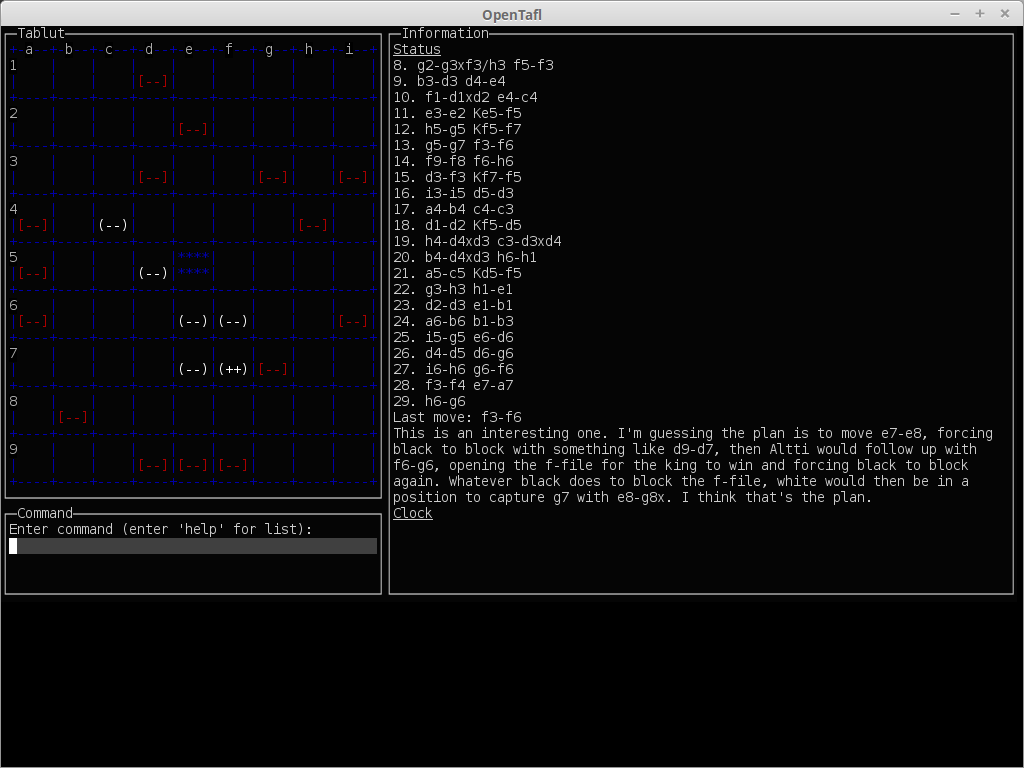OpenTafl is an open-source engine for board games in the hnefatafl family, supporting local human-on-human play, a built-in artificial intelligence, external AI engines, and (very soon) network play. You can get the stable release or the bleeding-edge release at the OpenTafl website, and you can find the source code at Bitbucket. If you run into any issues, please report them there.
The hnefatafl board games are asymmetric abstract strategy games. The defending player, who starts in the center of the board, must get his king to a board edge space or a corner space, while the attackers, who start around the outside, must stop him. There’s a thread here about the game, and a thread about the AI competition I’m running, too.



